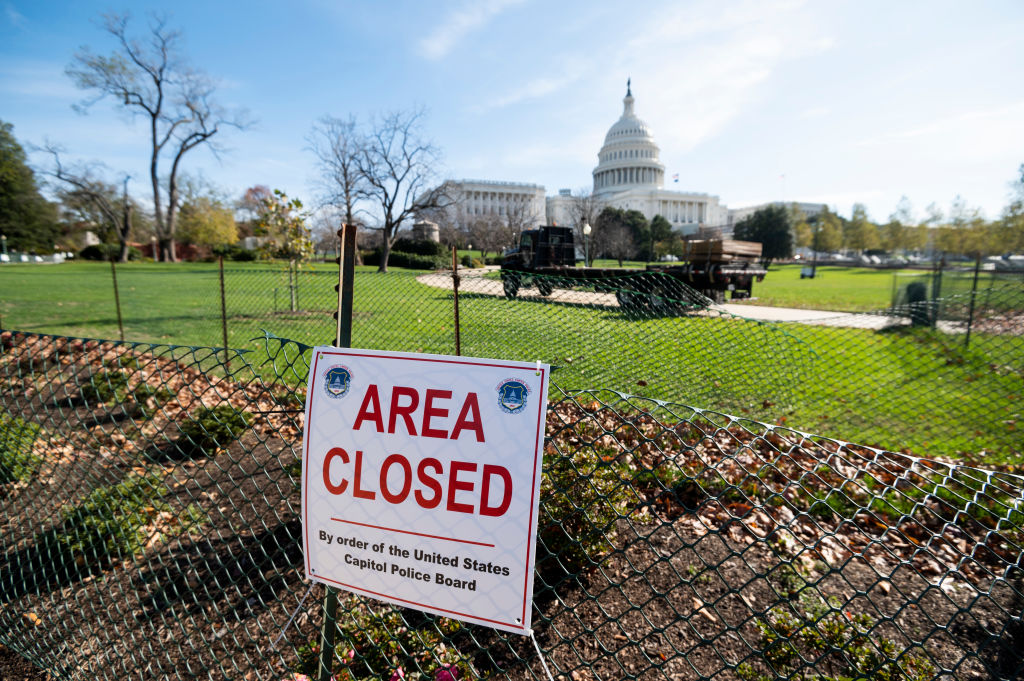
This article is part of the The DC Brief, TIME’s politics newsletter. Sign up here to get stories like this sent to your inbox every weekday.
Unemployment claims are rising, coronavirus cases are spiking, the nation’s biggest school systems are closing…and the Senate is on vacation.
Yes, you read that right. Members of the Senate left the Capitol in Washington on Wednesday for Thanksgiving break. The House is expected to leave on Friday. And a coronavirus relief package is nowhere in sight.
This has effectively been the state of play since the summer, as discussions got underway for crafting an additional emergency relief bill to follow the $2.2 trillion CARES Act passed in March. Both Democrats and Republicans want to get something done, but remain at odds over how to do it. House Democrats passed two bills earlier this year, which Senate Majority Leader Mitch McConnell dismissed as too expensive and a “liberal wish list.” In the Senate, Republicans tried to pass their own version of a bill, only to be blocked by Democrats who deemed it insufficient.
The platitudes on both sides have continued, with House Speaker Nancy Pelosi and Senate Minority Leader Chuck Schumer urging McConnell in a Nov. 17 letter to restart negotiations. Even President Donald Trump, who has shown little interest in governing since the Associated Press declared that Joe Biden had defeated him in the Presidential election, tweeted on Nov. 14 that Congress “must now do a COVID relief bill.” President-elect Biden has also called for a relief package.
All of this posturing reflects a partisan stalemate that has become depressingly typical in Washington, even as it becomes plain that the country—quite literally— cannot afford such division. As my colleague Jamie Ducharme writes in this week’s TIME cover story, “the U.S. is now locked in a deadly cycle of setting, then shattering, records for new cases and hospitalizations.” In short, we are getting sicker by the day, and we need federal help —not just to combat the disease, but to assist the inevitable economic decline that will continue to accompany it.
At least four states have closed restaurants for indoor dining in recent days, and Philadelphia and Chicago have reinstated stay-at-home advisories. These measures are necessary, but are likely to inflict further economic damage that only another federal stimulus can really alleviate at this point. Troubling signs are already emerging: The Wall Street Journal reported on Thursday that applications for unemployment benefits last week rose by 31,000, to 742,000.
Studies have shown that Congress’ ability to come together in March to pass the CARES Act staved off some economic calamity. But many of the programs providing that relief, including the $600 supplemental unemployment insurance and the payroll support program keeping airline workers employed, expired months ago.
The question before lawmakers now is how bad the current situation has to get before they actually agree to do something about it.
Make sense of what matters in Washington. Sign up for the daily D.C. Brief newsletter.
More Must-Reads from TIME
- Cybersecurity Experts Are Sounding the Alarm on DOGE
- Meet the 2025 Women of the Year
- The Harsh Truth About Disability Inclusion
- Why Do More Young Adults Have Cancer?
- Colman Domingo Leads With Radical Love
- How to Get Better at Doing Things Alone
- Michelle Zauner Stares Down the Darkness
Write to Alana Abramson at Alana.Abramson@time.com